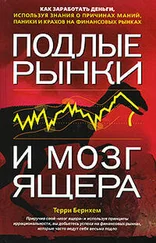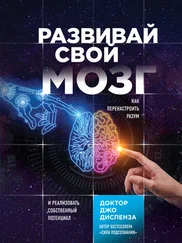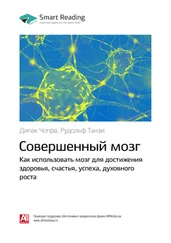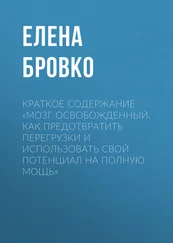“A Pace Not Dictated by Electrons”: An Empirical Study of Work Without Email. Gloria J. Mark, Stephen Voida, Armand V. Cardello. Proceedings of CHI 2012.
The effect of cognitive style and curiosity on information task multitasking. Angela Manyangara Elaine G. Toms 10 Proceeding of the third symposium on Information interaction in context. ACM New York, NY, USA 2010.
The Effect of Repeated Exposure to Unpredictable Reward on Dopamine Neuroplasticity. Sarah Ann Mathewson. Department of Psychology – Master theses. http://hdl.handle.net/1807/18915
Novelty Seekers and Drug Abusers Tap Same Brain Reward System, Animal Studies Show. By Robert Mathias. http://archives.drugabuse.gov/nida_notes/nnvol10n4/Novelty.html
Novelty Seekers and Drug Abusers Tap Same Brain Reward System, Animal Studies Show. By Robert Mathias. January 14, 2009. http://archives.drugabuse.gov/nida_notes/nnvol10n4/Novelty.html
http://www.intersperience.com/news_more.asp?news_id=39
A nation addicted to smartphones http://media.ofcom.org.uk/2011/ 08/04/a-nation-addicted-to-smartphones/
Tim Locke, Nasty Bugs Lurking on Your Cell Phone. http://www.medscape.com/viewarticle/751569
Turel, Ofir; Serenko, Alexander; and Bontis, Nick, “Blackberry Addiction: Symptoms and Outcomes” (2008). AMCIS 2008 Proceedings. Paper 73. http://aisel.aisnet.org/amcis2008/73. The psychological roots of overconsumption. N. Hagens. in Fleeing Vesuvius. R. Douthwaite, G. Fallon and R. Heinberg p. 339 (название этой статьи отчасти вводит в заблуждение, поскольку она содержит очень информативный материал о зависимостях).
Internet addiction: a 21st century epidemic? Dimitri A Christakis. BMC Medicine 2010, 8:61. Или http://www.biomedcentral.com/1741-7015/8/61
Glücksspiel– und Internetsucht. Review und Forschungsagenda. K. Wolfling, M. Buhler, T. Leménager, C. Morsen and K. Mann. Der Nervenarzt. Volume 80, Number 9, 1030–1039.
Treatment of internet addiction. Huang X.Q., Li M.C., Tao R. Curr Psychiatry Rep. Oct 2010; 12(5); pp. 462–470.
“Overcoming Email Addiction: Understanding the 'Leave Me Alone!’ Approach”Gupta? Ashish; Sharda, Ramesh; and Greve, Robert A., (2009). AMCIS 2009 Proceedings. Paper 128. http://aisel.aisnet.org/amcis2009/128
Should DSM-V Designate “Internet Addiction” a Mental Disoder? Ronald Pies. Psychiatry (Edgmont). February 6, 2009; 6(2), pp. 31–37.
The Role of Internet User Characteristics and Motives in Explaining Three Dimensions of Internet Addiction. Junghyun Kim, Paul M. Haridakis, Journal of Computer-Mediated Communication. Volume 14, Issue 4, July 2009, pp. 988–1015.
Flisher, C. (2010), Getting plugged in: An overview of Internet addiction. Journal of Paediatrics and Child Health, 46: pp. 557–559.
‘Liking’ and ‘wanting’ food rewards: brain substrates and roles in eating disorders. Berridge, K.C., Physiology & Behavior, 97(5), 537–550, 2009.
Building a neuroscience of pleasure and well-being. Psychology of Well-Being: Theory Research and Practice. Berridge, K.C. & Kringelbach, M.L. http://www.psywb.com/content/1/1/3, 2011.
Opioids for hedonic experience and dopamine to get ready for it. M. Flavia Barbano and Martine Cador. PSYCHOPHARMACOLOGY. Volume 191, Number 3 (2007), pp. 497–506.
Positive Reinforcement Produced By Electrical Stimulation Of Septal Area And Other Regions Of Rat Brain. Olds, James; Milner, Peter. Journal Of Comparative And Physiological Psychology, Vol. 47(6), Dec 1954, pp. 419–427.
Последние исследования показали, что в нашем головном мозге существует не один центр удовольствия, а комплекс из множества взаимосвязанных систем вознаграждения. Выяснилось также, что дофамин играет множество разных ролей. Кроме того, что он вызывает чувство удовольствия, он стимулирует активность, коммуникабельность, любопытство и стремление к поиску новизны.
The Machine Zone: This Is Where You Go When You Just Can’t Stop Looking at Pictures on Facebook.
What an anthropologist’s examination of Vegas slot machines reveals about the hours we spend on social networks ALEXIS C. MADRIGAL The Atlantic. Jul 31, 2013.
For Impatient Web Users, an Eye Blink Is Just Too Long to Wait. By STEVE LOHR The New York Times. Febr 29, 2012.
Predictability Modulates Human Brain Response to Reward. Gregory S. Berns, Samuel M. McClure, Giuseppe Pagnoni, and P. Read Montague. The Journal of Neuroscience, 15 April 2001, 21(8): 2793–2798.
The psychological roots of overconsumption. N. Hagens. in Fleeing Vesuvius.R. Douthwaite, G. Fallon and R. Heinberg p 339 (название этой статьи отчасти вводит в заблуждение, поскольку она содержит очень информативный материал о зависимостях).
Operant Sensation Seeking Engages Similar Neural Substrates to Operant Drug Seeking in C57 Mice. Christopher M. Olsen and Danny G. Winder. Neuropsychopharmacology. June 2009; 34(7): 1685–1694.
Neural Differentiation of Expected Reward and Risk in Human Subcortical Structures. Kerstin Preuschoff, Peter Bossaerts, and Steven R. Quartz. Neuron. Vol. 51, Issue 3, 3 Aug 2006, pp. 381–390.
The Neurobiology and Genetics of Impulse Control Disorders: Relationships to Drug Addictions. Judson A. Brewer, MD PhD and Marc N. Potenza, MD PhD Biochem Pharmacol. January 1, 2008; 75(1): 63–75.
Effects of dopamine depletion in reward seeking behavior. M. Pessiglione and L. Tremblay In Jean-Claude Dreher, Handbook of reward and decision making 2009 Elsevier Inc, p. 271.
Stress: Friend and Foe. Theo Compernolle. Synergo/Lannoo.
Influences of socioeconomic status, social network, and competence on subjective well-being in later life: A meta-analysis. Pinquart, Martin; Sӧrensen, Silvia. Psychology and Aging, Vol. 15(2), Jun 2000, pp. 187–224.
Stress, social support, and the buffering hypothesis.Cohen, Sheldon; Wills, Thomas A. Psychological Bulletin, Vol. 98(2), Sept 1985, pp. 310–357.
Sense of community belonging and health in Canada: A regional analysis. Kitchen, P., Williams, A., & Chowhan, J. (2012). Social indicators research, 107(1), pp. 103–126.
How Groups Affect Our Health and Well-Being: The Path from Theory to Policy. Jetten, J., Haslam, C., Haslam, S. A., Dingle, G., & Jones, J. M. (2014). Social Issues and Policy Review, 8(1), pp. 103–130.
Cross-cultural adaptation of Hispanic youth: a study of communication patterns, functional fitness, and psychological health. McKay-Semmler, K., & Kim, Y. Y. (2014). Communication Monographs, (ahead-of-print), 1–24.
A brief social-belonging intervention improves academic and health outcomes of minority students. Walton, G. M., & Cohen, G. L. (2011). Science, 331(6023), 1447–1451.
How does online social networking enhance life satisfaction? The relationships among online supportive interaction, affect, perceived social support, sense of community, and life satisfaction, Hyun Jung Oh, Elif Ozkaya, Robert LaRose, Computers in Human Behavior, Volume 30, Jan 2014, pp. 69–78.
Читать дальше
Конец ознакомительного отрывка
Купить книгу












